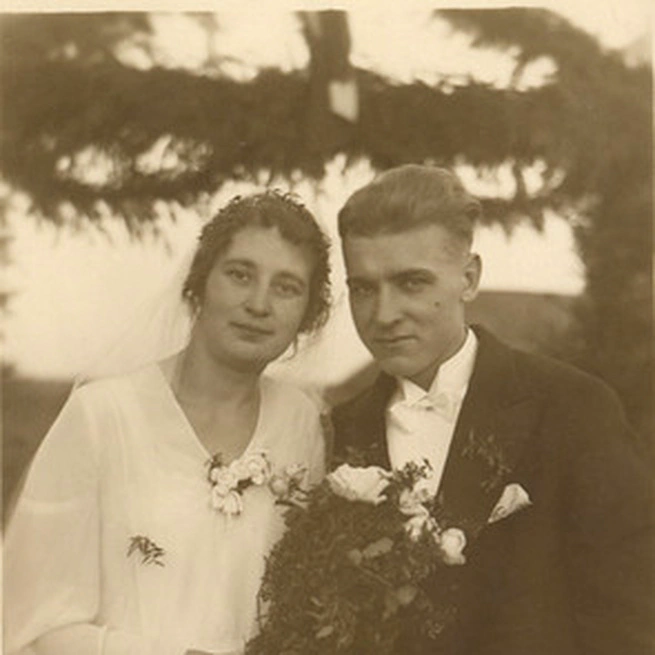
About two weeks before the wedding, Milda was working at a neighbour’s at milling when she got a cold. She had a fever but we went to Riga to buy the wedding rings, wedding dress, a coat, and an evening suit for me. Milda was taking all sorts of powders. Her temperature would go down immediately but later would be even higher. When we got home she went to bed and the doctor advised that the wedding had to be postponed for a month, which we did. (A: She had rheumatic fever, which damaged a heart valve and caused problems for the rest of her life). We had to notify all of our friends and relatives. Even a month later she was not very fit, so I hired a car-taxi as I was afraid she would catch a cold again. The car drove very slowly so that the horse carriages could follow, there were about 10. Along the route there was a number of honour arches, which was a custom in the country (a house high arch was constructed and covered with foliage and flowers). We had to stop at these arches and leave a bottle of drink.
Feb 3, 2010
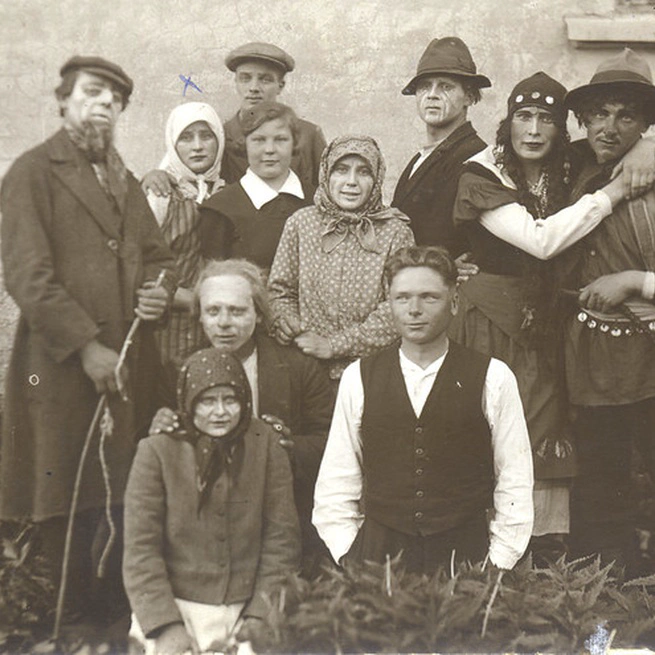
After only about a week, Milda’s mother quietly brought her daughter to my place one evening with all of her possessions. At that time at the factory the living part consisted of a bedroom, a kitchen and a very large room that doubled as living room and office. That is where we started our new life. Because in autumn and winter there was not much milk, the factory operated only every second day. We heated our rooms and kept warm as Milda’s health improved. We were careful not to have children being so young - we wanted to enjoy our youth. We had already before marriage joined an acting group and formed a theatre group with a local teacher, Juske, from across the road taking on the role of director. The rehearsals were usually held in the large room at the factory.
Feb 4, 2010
The next nearest factory was in Kuldiga 18 kilometres away, but the Snepele factory only received milk from about 30 farms. The others processed the milk themselves and made butter which they sold in the market in Kuldiga. I suggested to the committee president that the two of us should canvas all of the farms in a 4-5 kilometre radius, which we visited on my motorbike. We offered them to try selling the milk to the factory for a month, we even lent them cans for transporting the milk. The results were surprisingly good; their income was 100% higher this way.
Feb 6, 2010
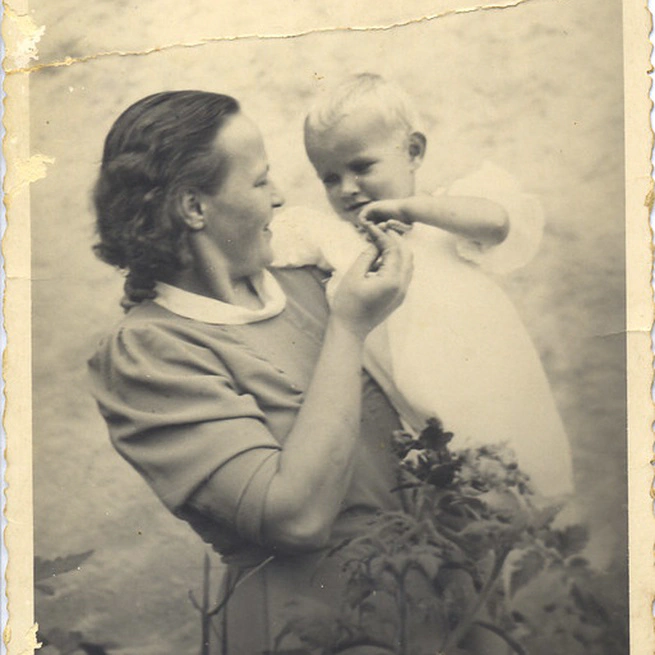
Aija: The above covers the years 1932-40. In 1935 I, Aija, was born. When I was one-year-old, I was very sick for months. It started with whooping cough, then I had a mystery illness which I believe was TB, as at this time Milda’s sister Kostance became chronically sick with it. Milda’s father died of it and her brother Sass was very sick with TB of the spine and spent 1 ½ years in hospital.
Feb 7, 2010
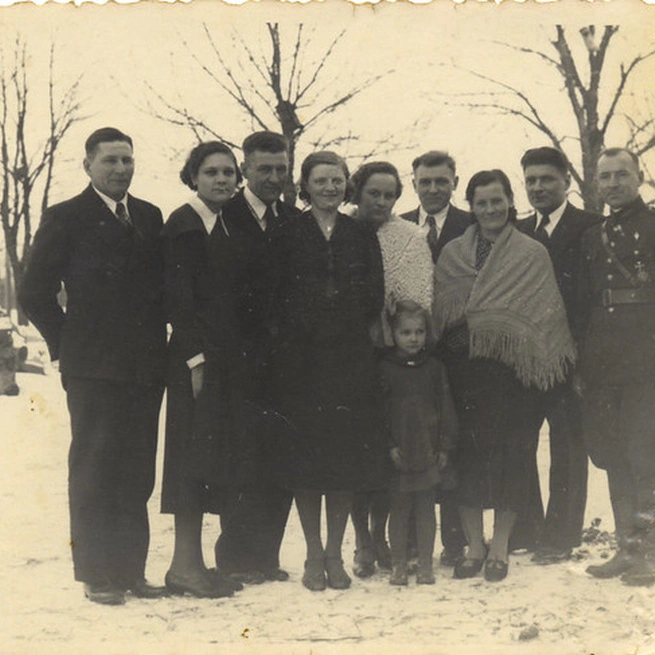
We had most of the rebuilding finished when the great upheaval started - Russians came in (communists). Those that were in the National Guard were denounced as capitalist servants. Then imprisonment and people being sent to Siberia started. From our friends, the National Guard captain Osnieks and Milda’s brother Adolfs with their families were taken on 14th June, 1941 (This was the day for mass arrests across Latvia). The men were separated from their families and disappeared while the families were taken to Siberia and after the war many returned to Latvia.
Feb 8, 2010
The next year the Germans came in. They found all the documents and lists left by the Russians and the names of people who had denounced those arrested by the Russians. Amongst them was the factory cashier. They were jailed in Kuldiga, condemned to death and shot. The military court captain, Kukis, was a previous National Guard officer. After the Germans came in, a lot of the administration was taken on by past Latvian National Guard, and at first the police in Kuldiga was run by agricultural officers, managed by Peteris Skujins and Pelekis, both from the agriculture department.
Feb 9, 2010
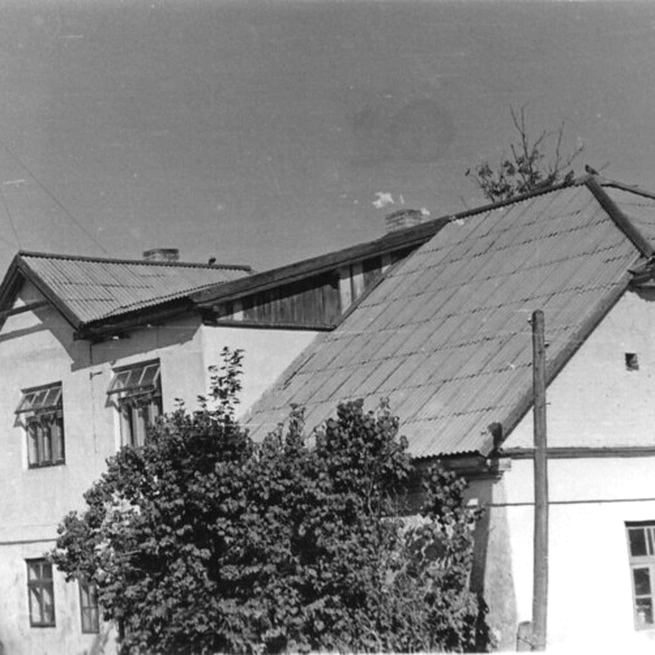
At the factory all went on as before, the equipment had been rebuilt for steam and it was going well. Only our living quarters were still the same - not satisfactory. I was planning and suggested that a second floor could be put above the factory for a flat. At that time the materials for building or adding to milk factories were possible to get. I knew Kuldiga, the district building inspector, and invited him to the factory to have a look. He checked the existing walls on the lower floor which were made of stone, about one meter thick. He decided that they were strong enough to support the upper floor, and he himself did the sketch and promised to draw up the plans which contained a room at each end of the roof, a bedroom, a living room and a kitchen in the middle. I also managed to get all the materials myself. I went to the cement factory and saw the manager bringing him two kilograms of butter as a present (at that time all business was done this way by seeing the appropriate person on a one-to-one basis). He put the butter in his desk drawer and wrote an official order at the current price for cement. That was also how all the other materials and tradesmen were organised. The work went on very quickly and for 40-50 kilograms of butter and some thousands of worthless German money (I knew that after a war money became worthless, that has always happened) the factory gained a great increase in value.
Feb 10, 2010
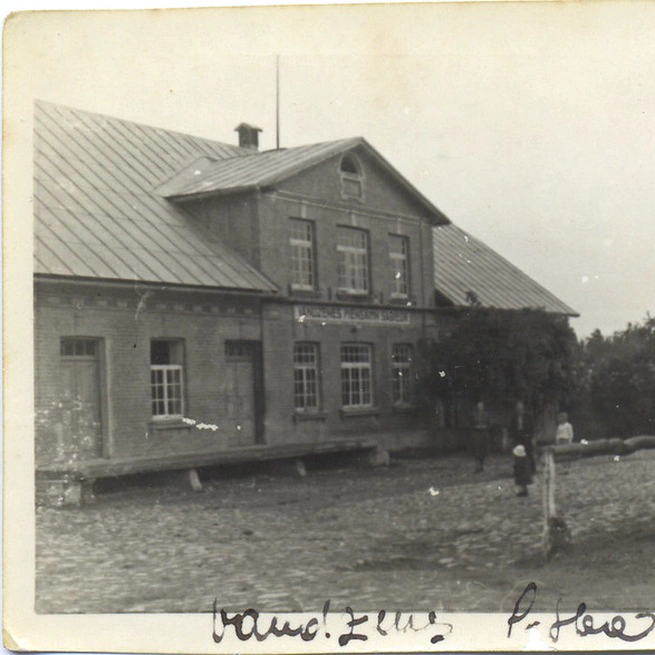
After about a week the investigator telephoned to say that there are a lot of problems at Vandzene milk factory, the manager had married a farmer’s only daughter and was going farming, so they needed a new manager urgently. The investigator was advising me to change jobs and he gave me the best references as an energetic manager. It did not take me long to decide to take it up, and I gave notice to the committee. Everybody was very surprised that I would leave after 13 years in the job.
Feb 10, 2010
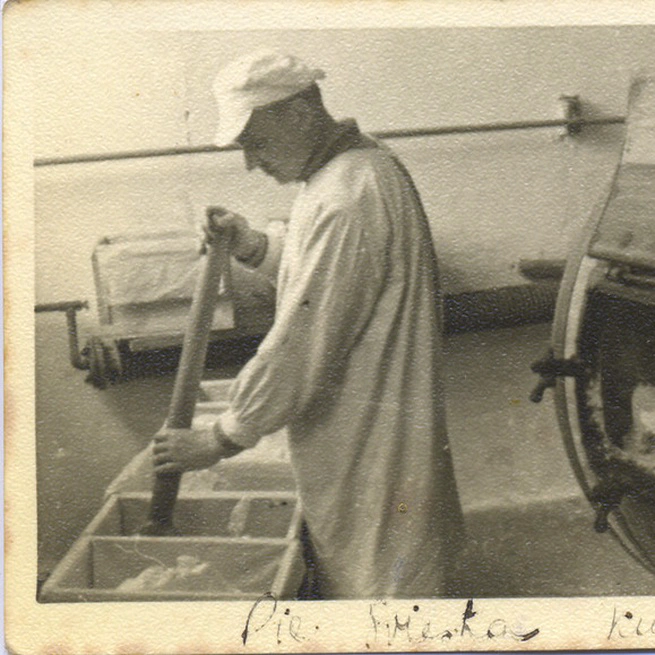
At Vandzene, the factory was in a bad condition; dirty and a lot of the equipment was out of order. The manager said that nothing could be done as it was impossible to get any parts or repairs. With my previous experience at Snepele I knew that if I went in person with some butter I could get it, rather than leaving it to the committee. This way I could get anything that was in any of the warehouses so I took a truck and filled it with everything needed. I had the whole place whitewashed and all the machinery fixed so that we could really start producing.
Feb 12, 2010
We decided then to go to Sweden, a local man with three teenage daughters was arranging it. They knew a fisherman, and we packed some food for a day or so and very little else and went to Mersrags. As we got there a storm came up, and the fisherman said it was too dangerous to go to sea in it. We waited a couple days, hiding in a hay loft, but it did not improve, so we went back home. All of our friends laughed and teased us - the big Swedish travellers! After this the Germans increased their patrols to stop people leaving for Sweden.
Feb 13, 2010